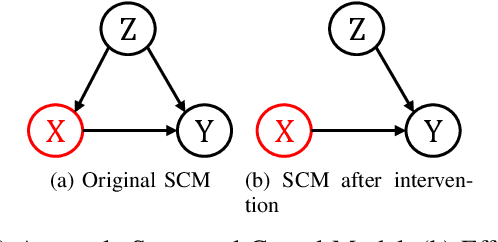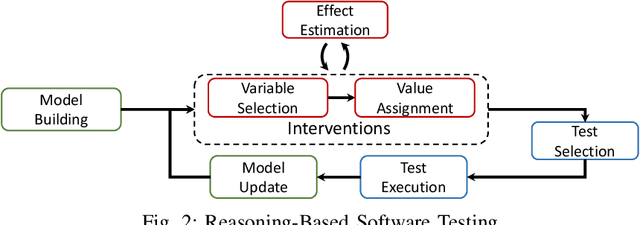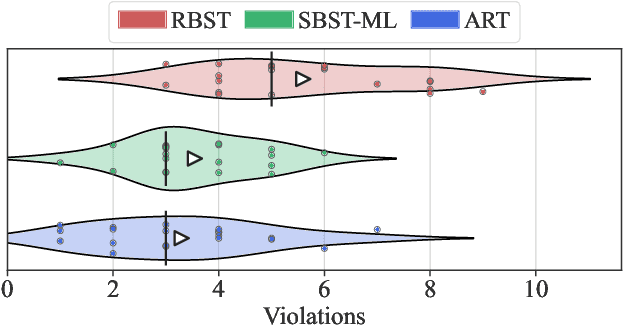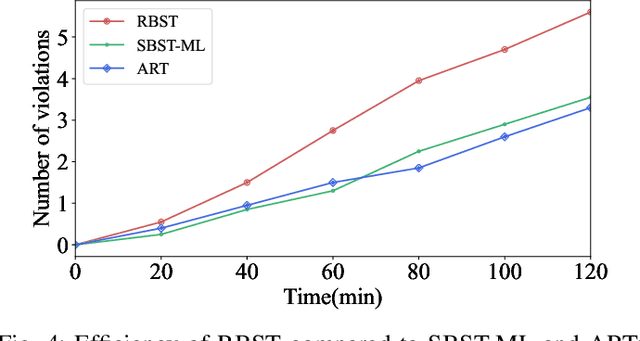Reasoning-Based Software Testing
Paper and Code
Mar 02, 2023



With software systems becoming increasingly pervasive and autonomous, our ability to test for their quality is severely challenged. Many systems are called to operate in uncertain and highly-changing environment, not rarely required to make intelligent decisions by themselves. This easily results in an intractable state space to explore at testing time. The state-of-the-art techniques try to keep the pace, e.g., by augmenting the tester's intuition with some form of (explicit or implicit) learning from observations to search this space efficiently. For instance, they exploit historical data to drive the search (e.g., ML-driven testing) or the tests execution data itself (e.g., adaptive or search-based testing). Despite the indubitable advances, the need for smartening the search in such a huge space keeps to be pressing. We introduce Reasoning-Based Software Testing (RBST), a new way of thinking at the testing problem as a causal reasoning task. Compared to mere intuition-based or state-of-the-art learning-based strategies, we claim that causal reasoning more naturally emulates the process that a human would do to ''smartly" search the space. RBST aims to mimic and amplify, with the power of computation, this ability. The conceptual leap can pave the ground to a new trend of techniques, which can be variously instantiated from the proposed framework, by exploiting the numerous tools for causal discovery and inference. Preliminary results reported in this paper are promising.
 Add to Chrome
Add to Chrome Add to Firefox
Add to Firefox Add to Edge
Add to Edge